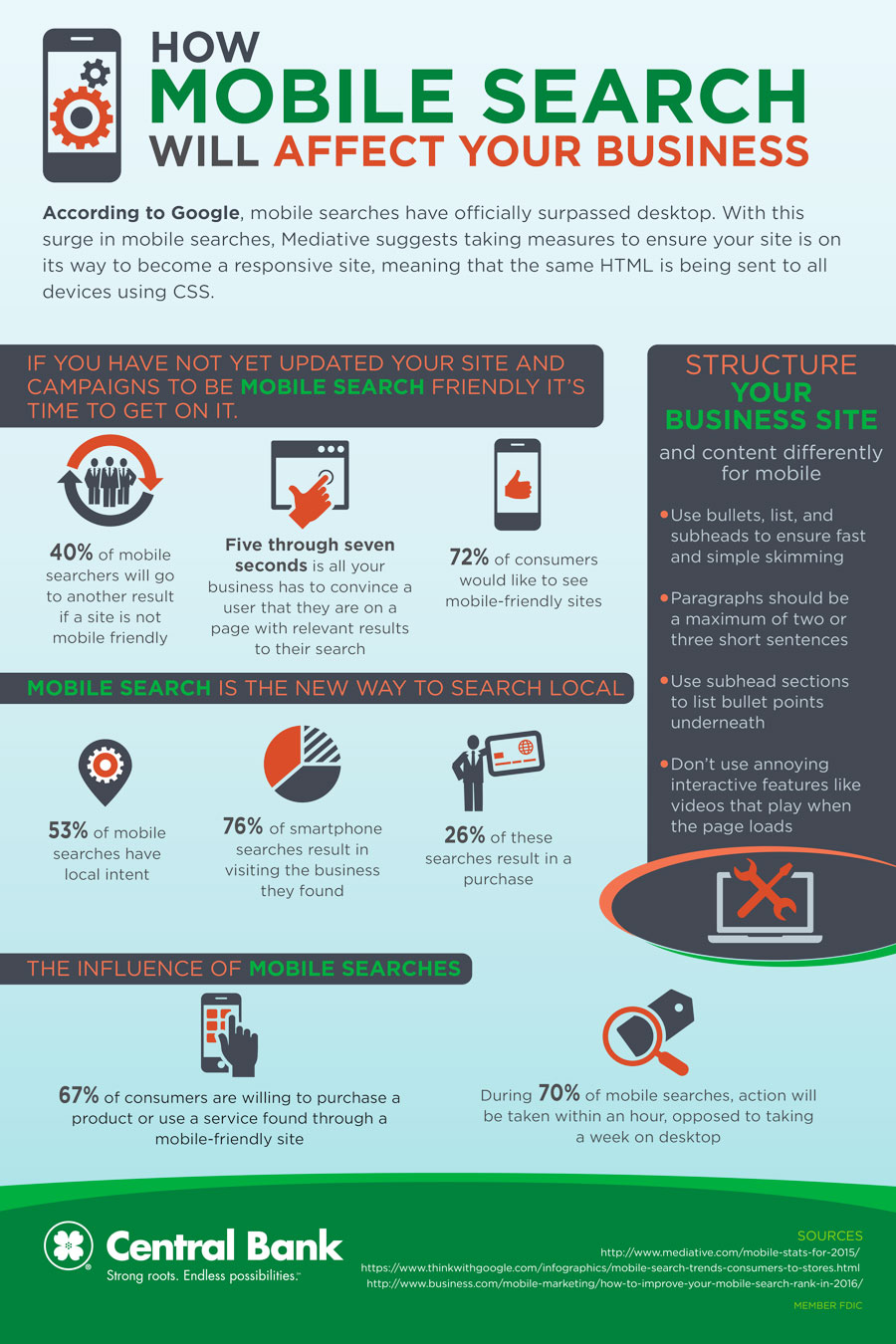Business.com explains that mobile and desktop search engine optimization (SEO) are two different marketing channels that require two different search strategies [2]. Mobile search has advanced to the point in which you cannot simply expect your desktop sites or campaigns to transfer over to mobile and receive the same reaction to them on mobile as you do on desktop.
Mobile campaigns MUST be different than desktop campaigns.
When paying for an ad spot for a desktop campaign, you know that your target audience will most likely be conducting research for something. When a consumer is searching on a device, they don't want to research, they want an immediate solution to their problem. Mobile searches need to be simple so the consumer can readily take action [2].
Like desktop searches, key words in mobile searches are important. Your business needs to be aware that mobile searchers are using different keywords and phrases than they would if they were searching on a desktop [2].
When creating your mobile content, think of what you do when searching on your phone or tablet. Do you read full articles and watch all of a video clip? Probably not. Business.com says to start by thinking about where your content is going to be consumed. On a mobile site, your user is far more likely to skim your business's blog post or campaign while in line at the coffee house than reading the entire article.

Location, location, location
Think with Google states that 30 percent of all mobile searches are related to location [3]. This could be anywhere from where to grab a soft pretzel to the nearest bails bondsman or lawyer. Also keep in mind that currently, 76 percent of smartphone users search for something nearby and visit the business they found within one day; 26 percent of these searches result in a purchase [3].
You need to remember that the bulk of Google searchers using smartphones have a local intent [2]. As long as their phone's location finding services are on (and they are unless manually turned off), google will automatically add a location, usually the nearest to the person searching on their phone. This means that you must not only optimize your organization's mobile search operation, but also its local search intent too.
Structure your mobile media for your user's experience
Your content design's structure should make consumption easy. To ensure simple and fast skimming: use bullets, lists and subheads [2]. Make sure paragraphs are a maximum of two or three short sentences. If possible create subhead sections and list bullet points underneath.
Business.com suggests to keep interactive elements to a minimum and avoid annoying features, like a video that plays automatically when a page loads. You are also fighting the constant distractions of text messages and Twitter notifications, so keep everything short and concise.
With this surge in mobile searches, Mediative says to be sure your business is taking measures to ensure that your site moves to being a responsive site, which means ensuring that the same HTML coding is being sent to all devices using the CSS language to alter the rendering of the page on the device [1].
Sources:
[1] 49 Mobile Search Stats for 2015, Mediative
[2] In Their Hands: How to Improve Your Mobile Search Ranking in 2016
[3] How Mobile Search Connects Consumers to Stores, Think With Google